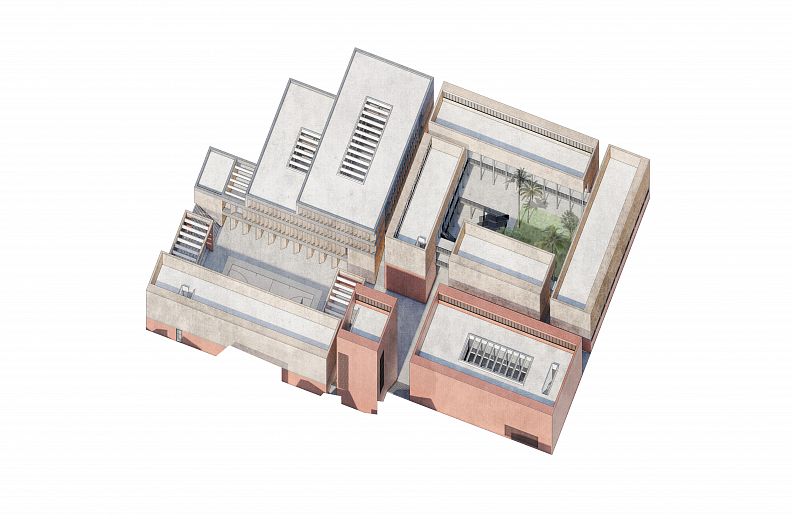New Elementary School for Mosul - Iraq

Project idea
The city of Mosul is on its knees, badly destroyed by the war. Thousands of displaced people live in camps outside of the city with a huge desire to see once again mosul in its habitable condition. The project is the testfield to try to answer the question of how can architecture play a role in supporting a traumatized population in a post-conflict city? The goal of the project is to start the process of reintegration and cohesion of society.
Architecture has the opporutunity to look at the post-conflict place from a spatial perspective: building sense of belonging, empowerment of community and active participation of the people. During a conflict, entire generation of children lost years of education. This leads to the phenomenon of so called “lost generation”. It is no coincidence that islamic state used children as the ultimate weapon. For this reason education is fundamental.
Project description
The site is located along one of the main roads of the city Al Shaziani Street, right opposite to the graet Al-nuri Mosque (the most iconic building). Design strategy is to consider the building as a solid mass, which is extracted by different types of courtyards. Courtyards are the most dominant typology of mosul, widely used for residential purposes. The project follows the similiar logic of the context, regular shapes of courtyard, opposing to irregularity of buildings itself. There is a huge contrast between street of mosul and its courtyards. Courtyards are the spaces of cohesion and life. Therefore courtyards become the essential element of the project. The architectural quality is achieved by heirachy of spaces, level of privacy and experience of athmospheres.
Technical information
In the project I was working also with climatic aspects of Iraq. All the buildings are designed in a way to avoid overheating and they also enable natural ventilation and cooling during hot summers.




















